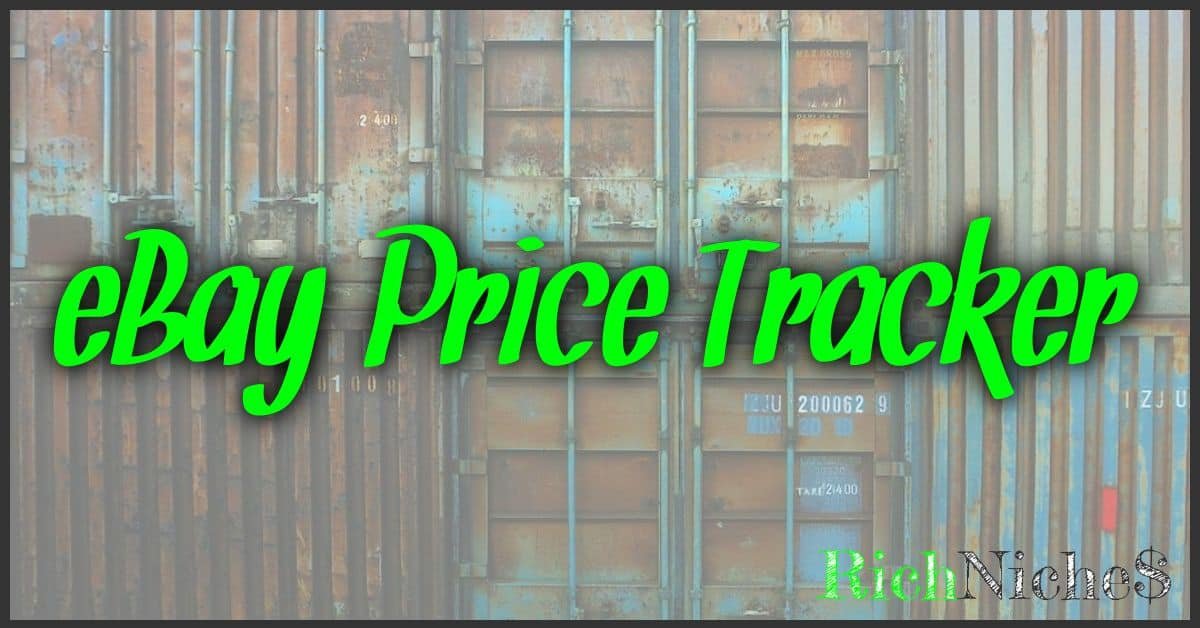With the recent controversies surrounding Facebook, you might be considering alternatives for your social media needs. The convenience of Facebook’s vast user base and features such as Messenger and Newsfeed has drawn many to the platform, but concerns over privacy, data security, and corporate interference have started turning people away.
As the social media landscape evolves, exploring options outside of Facebook becomes increasingly important. Although no alternative can match Facebook’s reach or user convenience, various platforms offer unique advantages for specific purposes. In this article, we will present some top picks for social media alternatives that cater to various needs and goals.
Key Takeaways
- Numerous social media alternatives exist for those concerned about Facebook’s data security and corporate interference.
- Each platform offers unique advantages tailored to specific needs, such as affiliate marketing, advertising, or brand recognition.
- The evolving landscape of social media may lead to more people switching from Facebook, making these alternatives more significant over time.
1. Top Choice for Affiliate Marketers and Niche Site Creators: Pinterest
Pinterest stands out as a unique platform, functioning both as a social media network and a search engine. Its highly engaged user base makes it an excellent choice for driving more clicks to your links than platforms like Facebook.

One significant advantage of using Pinterest for marketing is its cost-effective advertising. Ads on Pinterest are not only more targeted but also have a longer life span compared to Facebook ads, making it an ideal option for independent businesses and small brands exploring marketing opportunities.
Navigating the Pinterest algorithm is more straightforward than dealing with the complex systems of Google or even Facebook, where essential content might get missed. With just a little patience, you can quickly develop an effective Pinterest marketing strategy.
Pinterest also ensures that your feed is populated with content tailored to your interests, unlike Facebook’s selective and unpredictable algorithms. So, while Pinterest may not be a go-to platform for staying connected with family, it’s an exceptional networking site for communicating and engaging with your brand or business.
In comparison to platforms like Instagram, Snapchat, TikTok, and other popular channels for influencers and content creators, Pinterest provides a user-friendly and efficient way for affiliate marketers to reach their desired audience and grow their online presence.
2. Best Platform for Advertising + Runner-Up Pick for Affiliate Marketing—YouTube
Utilizing YouTube might require a bit more effort compared to other Facebook alternatives, but it’s an exceptional choice, especially for those with a creative flair. As an affiliate marketer or niche site owner, the impressive numbers on YouTube are hard to ignore.
To make the most of YouTube, focus on producing captivating video content, as videos have become the preferred mode of marketing in recent years. This feature makes YouTube an ideal platform for advertising.
With its enormous user base active almost constantly, YouTube excels as a top alternative to Facebook in terms of reaching a broad audience.
You can listen to a podcast featuring Eric Worral, who shares his experiences of earning significantly through YouTube affiliate marketing. It’s worth exploring why YouTube is an important platform for your business and how it fits into the social media landscape.
Moreover, YouTube is committed to user privacy, ensuring your data is protected. While they do collect some user data, rest assured that they never sell it to third parties. This aspect sets YouTube apart, making it a reliable choice for both advertisers and users alike.
Given its potential to advertise and promote affiliate marketing effectively, YouTube positions itself as not only a solid option but a top contender in the advertising and marketing landscape. Remember to incorporate various features like live streaming, video calls, and media sharing to further enhance your marketing strategy.
3. Best for Building Brand Recognition—Twitter
Twitter is an excellent choice for building your brand recognition and directing traffic to your site. With a history free from data protection issues, Twitter stands strong as a reliable platform for businesses. Here are a few reasons why Twitter is a top contender for your brand’s growth:
- User-friendly mobile app: Twitter has a straightforward design, which allows for a smooth iOS/Android app experience, making it easy for users to engage with your content on the go.
- Broad reach and potential for virality: While both Facebook and Twitter have massive user bases, Twitter’s platform allows for a wider reach, increasing the likelihood of your content going viral and expanding your brand’s presence.
- Easy targeting of niche audiences: You can quickly find and connect with potential customers on Twitter by searching for users based on interests, location, schools, and more. This feature makes Twitter stand out from other social media platforms that have limited connection options.
- Champion of free speech: Twitter has generally supported free speech, enabling you to use it as a market research tool. You can gather valuable insights about what your audience thinks about your brand.
In summary, if you want to generate buzz and boost your brand awareness, Twitter should be high on your list of platforms to consider. Its user-friendly design, wide reach, and easy targeting make it an ideal choice for developing your brand’s online presence.
4. LinkedIn
LinkedIn serves as a great alternative to Facebook, depending on the purpose you seek to fulfill. This platform enables you to connect with people and brands in a more professional setting.
While LinkedIn lacks a dedicated messaging app like Facebook Messenger, it still offers the ability to send text conversations and share media attachments. The platform is known for its professional reputation and offers a non-toxic environment to build credibility and a strong network for your business.
In comparison to other platforms, LinkedIn is particularly useful for company pages focused on recruitment, lead generation, or sharing content that might not perform as well elsewhere. As a new user, be careful about the connections you make initially: adding a bunch of seemingly unrelated people right away might give the impression of a bot or spam.
LinkedIn excels as a platform for job seekers and recruiters, providing an alternative to Facebook Marketplace. Though advertising on LinkedIn can be highly effective with various ad types supported, the cost might be steep for smaller companies, requiring a good understanding of ad campaign management.
In summary, if you’re looking for a more professional and focused networking platform, LinkedIn offers a friendly environment for connecting with like-minded professionals, exploring job opportunities, and more.
5. Nextdoor
Nextdoor is an excellent choice for local businesses that want to engage with their community as a Facebook alternative. Consider it a social platform tailored for your neighborhood, bringing you closer to your neighbors.
Don’t worry about awkward interactions with Jim across the street; focus on the direct connection to your ideal customers. While other alternatives may offer a broader reach, Nextdoor truly excels in community marketing for businesses providing local services.
Utilize features such as events, marketplace, and groups within Nextdoor to make the most of this friendly, neighborhood-focused platform, and watch your local business thrive.
6. Ello
Ello is a unique social media platform designed with artists in mind. Catering to painters, filmmakers, photographers, and other creators, this ad-free platform offers a refreshing alternative to mainstream networks. During a time when Facebook required users to register with their real names, Ello gained popularity by encouraging creativity and allowing users to choose any name they desired. Plus, your private data won’t be sold on this platform. If your business is connected to the art world, exploring Ello could be a valuable move for you.
7. Vero
Vero presents itself as a trendy alternative to Facebook, with its availability extending from mobile devices (iOS and Android) to now being accessible on Mac and Windows as well. What sets Vero apart is its ad-free chronological timeline, which shows you exactly what you’ve asked for without being manipulated by algorithms.
However, Vero maintains this ad-free environment by implementing a subscription-based model. Therefore, you should be aware of this aspect while considering this social network app.
Despite the cost, Vero remains a strong option for staying connected with friends, family, and even clients, as it offers a messenger app to exchange text messages and engage in straightforward voice conversations.
8. EyeEm
If you’re a photographer or an artist looking for an Instagram alternative, EyeEm could be the perfect choice. With its focus on user privacy and avoiding the data protection concerns that come with Meta-owned platforms, EyeEm provides a secure space for sharing visual content.
Initially a mobile-only app, EyeEm has evolved into a combination of social networking and stock photography service. You can engage with other users by liking and sharing their photos and even enhance your photography skills through their in-app magazine.
As a photographer, EyeEm offers an opportunity to gain recognition and sell your work. Participation in EyeEm Missions allows you to showcase your work to top brands like Nikon, Converse, and Apple, potentially opening the door for further collaborations.
Moreover, brands seeking high-quality and unique stock photos can benefit from EyeEm’s extensive catalog. By licensing photos from the platform, you can find the perfect visuals for your marketing campaigns, blogs, and other creative projects.
So, if you’re an artist, photographer, or just a fan of stunning visuals, explore the world of EyeEm to expand your horizons and connect with like-minded individuals.
9. Reddit
Reddit offers a great opportunity for long-term marketing campaigns, as it may take time for users to trust newcomers. However, once you establish yourself within the community, you can access a vast social network with millions of active members.
As a trustworthy alternative to Facebook groups, Reddit shines in organizing threads into specific categories. This makes it simpler for you to find users interested in your niche and initiate meaningful discussions. So, immerse yourself in Reddit’s vibrant community and enjoy a fruitful social networking experience.
10. MeWe
MeWe is your go-to choice for a secure social media alternative to Facebook. Since it’s ad-free, MeWe charges a small fee to create a business page, but this helps maintain its commitment to privacy and data protection.
When using MeWe for your business, consider joining or creating niche groups to grow a following. With a well-established audience, you can easily market your brand from your personal page. Apart from its strong focus on privacy and security, MeWe also minimizes tracking and ensures you have control over your privacy settings.
Take note that some of MeWe’s features, like cloud storage, special emoticons, and Secret Chat accounts, fall under their premium category. However, investing in these extras can enhance your experience on the platform.
One of the fastest-growing social networks, MeWe offers you the opportunity to shine in your niche. Although Facebook might have more users, MeWe allows you to stand out from the competition. So, starting on MeWe today may lead to a strong presence if the platform continues its rapid growth. Remember, being an early adopter can help you secure a spot as a trendsetter in your field.
11. Yubo
Yubo offers a unique opportunity to connect with a specific audience through its innovative take on social networking apps. Designed primarily for users aged 13-25, Yubo mimics real-life interactions by enabling video chats in rooms. You can create your own room, join friends’ rooms, and even make new friends by swiping, similar to Tinder.
If your business or brand targets a younger market, Yubo is an excellent platform to engage with your audience. However, keep in mind that Yubo doesn’t display ads, so your focus should be on crafting content that will capture users’ interest. This approach will help you build a following and increase brand recognition, whether you’re promoting a brand or yourself.
While Yubo doesn’t have specifically encrypted chat options like Signal, it’s essential to maintain secure communication and consider your target audience’s preferences when developing content for this platform. By keeping a friendly tone and engaging in genuine interactions, you’ll foster strong connections on Yubo.
12. Diaspora
If you’re seeking a decentralized and open-source social platform, Diaspora could be a great option for you. By using the free Diaspora software, you can create your own “pods” that form part of the larger network.
The advantage of Diaspora as a distributed social network is its enhanced privacy and security, compared to Facebook, due to running on your own personal web server. Additionally, it’s ad-free!
Despite being free of advertising, you can still use Diaspora to promote your business and enhance your brand among other users. Navigating Diaspora is fairly simple as well, especially if you’re familiar with Facebook. Engage with like-minded individuals and share interesting content for improved interaction on this decentralized platform that values your data and minimizes the risk of data breaches.
13. Mastodon
Mastodon offers a refreshing, open-source alternative to mainstream social networks like Twitter and Facebook. By embracing decentralization, you’ll enjoy enhanced privacy, security, and freedom on the platform. Mastodon allows you to cultivate your audience, share affiliate links, or direct traffic to your blog or website, all within a friendly and open environment. Embrace a more transparent social media experience with Mastodon.
14. Minds
Minds stands out among Facebook alternatives, quickly gaining popularity for its unique features and values. Unlike Facebook, Minds is an open-source platform that values freedom of expression and transparency, without tracking users or selling data.
One exciting aspect of Minds is its cryptocurrency, called Mind Tokens. As a content creator, you can earn these tokens by generating engaging digital content. Mind Tokens are Ethereum-based and can be exchanged for cash or used to boost your content, reaching more viewers.
Minds resembles Facebook closer than many other alternatives, functioning similarly but with distinct advantages. No more worrying about algorithms, and you can even monetize your creative efforts with Mind Tokens.
Switch to a Facebook Alternative Today
Depending on your needs, finding the perfect Facebook alternative can vary, whether it’s for personal connections, brand recognition, or affiliate marketing. To reach more users, consider platforms like:
- Pinterest – Great for affiliate links and visuals
- YouTube – Ideal for brand recognition through videos
- Twitter – Effective for quick customer interactions
Remember, choosing the right social media platform is crucial to match your specific niche. So take the leap and explore new social networks today!




